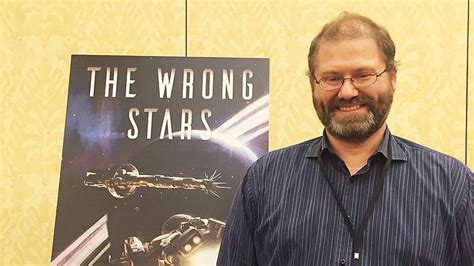A Quote by Thomas Gold
I wrote somewhere during the Cold War that I sometimes wish the Iron Curtain were much taller than it is, so that you could see whether the development of science with no communication was parallel on the two sides. In this case it certainly wasn't.
Related Quotes
For two generations up through the mid-1980s, many thought we were losing the Cold War, even in early 1989, few believed that Poland`s solidarity movement could win, that the Iron Curtain would come down, that the Baltic states could be free, that the second of the 20th century`s great evils, communism, could be vanquished without war, but it happened and the West`s great institutions, NATO and the E.U., grew to embrace 100 million liberated Europeans.
You know that Estonia, based largely on how successful Skype was, built by Estonian developers, that was a tenth of the entire country's GDP when eBay bought it. That was like a decade ago, it was f****** Estonia, they were behind the Iron Curtain two decades earlier. They're now pushing for K-12 education in computer science in public schools. They've gotten the message. They know how much value that can bring.
If I became lost in the multiverse, exploring infinite parallel dimensions, my only criterion for settling down somewhere would be whether or not I could find you: and once I did, I'd stay there even if it was a world ruled by giant spider-priests, or one where killer robots won the Civil War, or even a world where sandwiches were never invented, because you'd make it the best of all possible worlds anyway, and plus we could get rich off inventing sandwiches.
Wish You Were Here So, so you think you can tell Heaven from Hell, Blue skys from pain. Can you tell a green field From a cold steel rail? A smile from a veil? Do you think you can tell? And did they get you to trade Your heros for ghosts? Hot ashes for trees? Hot air for a cool breeze? Cold comfort for change? And did you exchange A walk on part in the war For a lead role in a cage? How I wish, how I wish you were here. We're just two lost souls Swimming in a fish bowl, Year after year, Running over the same old ground. What have we found? The same old fears. Wish you were here.
Science merely amplifies the capabilities of human beings. Science gives us the ability to do ill and to do good more than we had, and to question science in this respect is like questioning whether people ought to have two hands or just one, because with two hands they could do more evil than they can with just one.
There are two - parallel - universes of science. One is the actual day-to-day work of scientists, patiently researching into all parts of the world and sometimes making amazing discoveries. The other is the role science plays in the public imagination - the powerful effect it has in shaping how millions of ordinary people see the world.
Much as Cold War nuclear strategists could argue about winning a nuclear war by having more survivors, advocates of a Global Warming War might see the United States, Western Europe, or Russia as better able to ride out climate disruption and manipulation than, say, China or the countries of the Middle East.
Basically with the financing of the war economy America emerged as the great power that developed logically into a superpower. I am not going to explain to you the history of the Cold War because you certainly know it but what we see now is China as the rising economic superpower, one that is certainly moving forward.
The test of science is not whether you are reasonable—there would not be much of physics if that was the case—the test is whether it works. And the great point about Newton’s theory of gravitation was that it worked, that you could actually say something about the motion of the moon without knowing very much about the constitution of the Earth.
The real key to Jack's [Nicklaus] success was his fantastic ability to score. His drives sometimes went into the rough, but he could plow the ball out of the tallest grass and get it on the green; bad lies simply didn't affect him as they did the others. Jack also got tremendous height with his one-iron and two-iron, which meant that he could stop them better than his rivals.





































